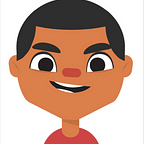Why You Should Make More Mistakes (and Love Yourself for it)
What you can learn from the wisdom of a seven year old and the tragedy of an eleven year old about making mistakes
Wisdom of a Seven Year Old
My daughter is seven. She’s the center of my universe, and I would do anything for her. One of the hardest things to experience as a parent is to see your child hurt or unhappy, and one of the hardest things to do as a parent is to not try and protect your child from all the disappointments and hardships they’ll encounter.
My daughter is delightfully curious and is at an age where learning about a bird’s cloaca* is as much fun for her as playing basketball or dressing up her dolls. She’s also at an age where she finds it incredibly frustrating when she tries something new and is not immediately “good” at it, and in those moments, she can be hard on herself for what she sees as “mistakes” (with mistake meaning not achieving the good outcome she had imagined).
* If you haven’t seen Spies in Disguise with Will Smith and Tom Holland, go see it! The scene where the super-spy-turned-pigeon character first discovers its cloaca is priceless :-)
As tempting as it is to help her avoid those “mistakes”, I’ve been doing my best to celebrate them. And as you might guess, at seven, she can see right though me. At this point, my repeated phrases of “that great! it means you’re learning” or “awesome, what did you learn?” are often greeted by a look I imagine to be the cute precursor to a pre-teen eye-roll. But she is hearing me. Yesterday, I asked her to give me an idea for a topic to write about. She immediately said, with a hint of seven-year-old-sarcasm, “why don’t you write about mistakes, and why they’re not horrible”?
Tragedy of an Eleven Year Old
As I went overboard “helping” my daughter accept her “mistakes” over the past few years, I started to realize that even after decades of trying, I still struggle accepting my own mistakes.
My dad died when I was eleven. It was sudden, unexpected, and changed my life. Two decades later, and after a couple years of therapy, I realized that one of the many consequences of losing my dad at such a young age was that, in my child’s mind, I convinced myself that I needed to be perfect. Perfect in school, perfect at sports, perfect with work. I thought I took risks in my personal and professional life, although as a I later realized, they weren’t risks at all, but rather, sure-bets where I knew I could win.
Years after my healthy dose of therapy, unwinding that deeply ingrained need for perfection is still a work-in-progress. I’ve had to remain vigilant to catch myself when I make a decision or react to an event in a way that protects my faux-perfect image but doesn’t reflect the reality of the situation or achieve the outcome I’m hoping for. Changing my default reaction to mistakes — both my own mistakes and those of the people around me — hasn’t been easy, but I’m doing better now than in the past.
Wish for the New Year
Changing behavior is hard, especially given the lifetime of experiences that have forged those behaviors over the years. But there’s nothing more compelling than knowing you need to model the behaviors you want your children to adopt. If I want my daughter to more easily accept her mistakes, I need to show her not just tell her, and embrace my own mistakes without regret or shame. So now I try to make it a point to share my mistakes and failures with her every chance I get.
In the New Year ahead, I hope you make more mistakes than you’ve ever made before, share them with the people you love, and love yourself all the more for it. As my seven year old put it, everyone thinks mistakes are horrible but they’re not, they actually help you learn 🙂
